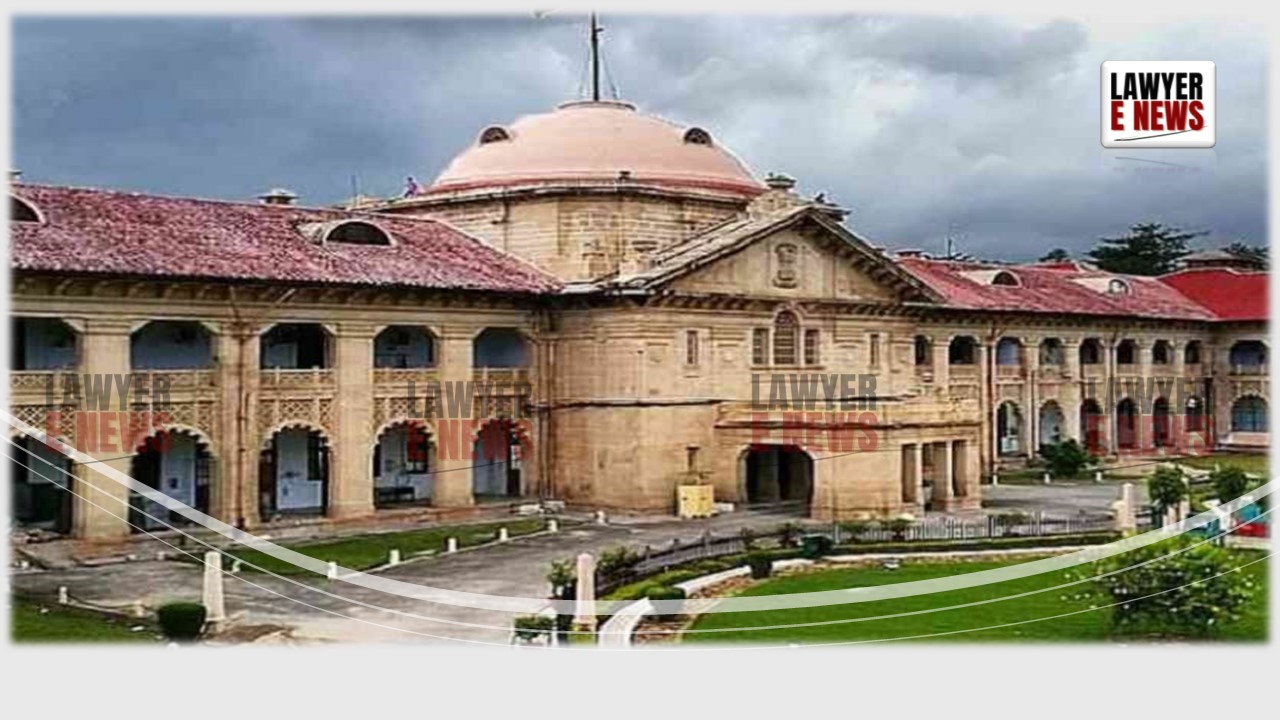-
by Admin
15 February 2026 5:35 AM



High Court Affirms Substitution of Legal Representatives in Hindu Marriage Act Case After Petitioner’s Death
In a landmark judgment delivered on May 8, 2024, the Allahabad High Court upheld the substitution of legal representatives in a pending petition under Section 11 of the Hindu Marriage Act, 1955, following the death of the petitioner. The bench, comprising Justices Vivek Kumar Birla and Syed Qamar Hasan Rizvi, ruled that the proceedings could continue with the deceased petitioner’s parents as legal representatives, affirming the applicability of Order 22 of the Code of Civil Procedure (CPC) in Family Court proceedings.
Deepak Mahendra Pandey filed a petition on April 5, 2022, under Section 11 of the Hindu Marriage Act, seeking to have his marriage with Shatakshi Mishra declared void. He alleged that Shatakshi Mishra had misrepresented herself as unmarried and did not convert to Hinduism, thus violating the conditions set forth in Section 5 of the Act. Unfortunately, Pandey died in a road accident on February 24, 2023. Following his death, his parents sought to continue the petition as his legal representatives, leading to the current appeal challenging the Family Court's decision to allow such substitution.
Applicability of Order 22 CPC: The High Court first addressed whether the provisions of Order 22 of the CPC, which deals with the procedure in case of the death of a plaintiff, were applicable in Family Court proceedings. The court confirmed that Order 22 CPC applies to Family Court cases, as outlined in Section 10 of the Family Courts Act, 1984, which states that the provisions of the CPC are applicable to Family Court proceedings, thus deeming Family Courts as Civil Courts.
Substitution of Legal Representatives: The court then considered whether the deceased petitioner’s parents could be substituted to continue the proceedings. The court cited the precedent set in Garima Singh v. Pratima Singh, where it was held that the narrow interpretation of "either party thereto" should not apply to social welfare legislation, ensuring that the rights of individuals, particularly regarding property, are upheld. The court noted:
"The term 'either party thereto' shall be interpreted in harmony with 'against the other party'. The provision aims to ensure that anyone aggrieved by the solemnization of a marriage has the option to file a suit in the Family Court."
The court emphasized the importance of a beneficial construction of statutes to protect property rights and socio-legal status, even after the death of a party involved in the litigation.
The judgment extensively discussed the principles of beneficial construction in statutory interpretation, particularly in social welfare legislation. It underscored the need to interpret laws in a manner that upholds justice and aligns with the broader objectives of the law.
The court referenced several landmark cases, including Maharani Kusumkumari v. Smt. Kusumkumari Jadeja, where it was held that petitions for declaring marriages null and void could proceed even after the death of one of the spouses due to the significant impact on property rights and legitimacy of offspring.
Additionally, the court cited the Supreme Court's ruling in Samar Kumar Roy (Dead) through Legal Representative (Mother) v. Jharna Bera, which supported the continuation of legal proceedings by the legal representatives of a deceased party, particularly when the outcome affected property and socio-legal status.
Justice Vivek Kumar Birla remarked, "In matters where the declaration of a marriage as void impacts property rights and socio-legal status, it is imperative to ensure that legal representatives can continue the proceedings to safeguard these interests."
The Allahabad High Court’s decision to dismiss the appeal and uphold the Family Court’s order allows the continuation of proceedings under Section 11 of the Hindu Marriage Act, affirming the substitution of the deceased petitioner’s parents as legal representatives. This ruling reinforces the judiciary's commitment to protecting the property rights and socio-legal status of individuals, ensuring that justice prevails even in the face of personal tragedy. This landmark judgment is expected to influence future cases involving similar legal questions.
Date of Decision: May 8, 2024
Shatakshi Mishra vs. Deepak Mahendra Pandey (Deceased) and Others
